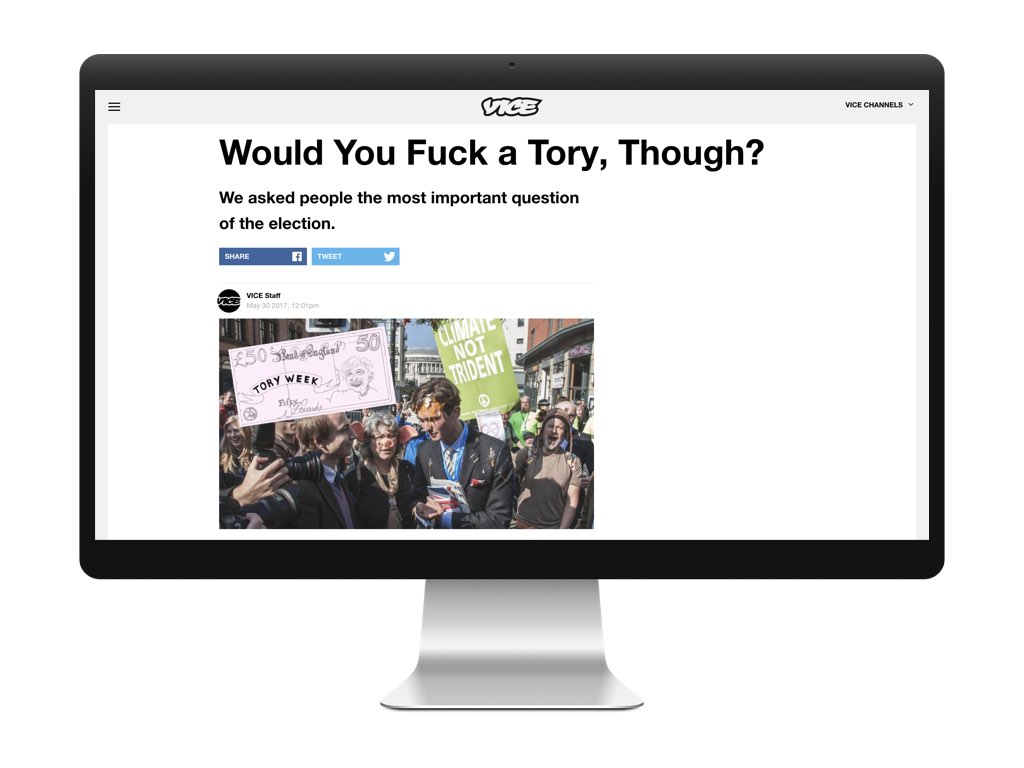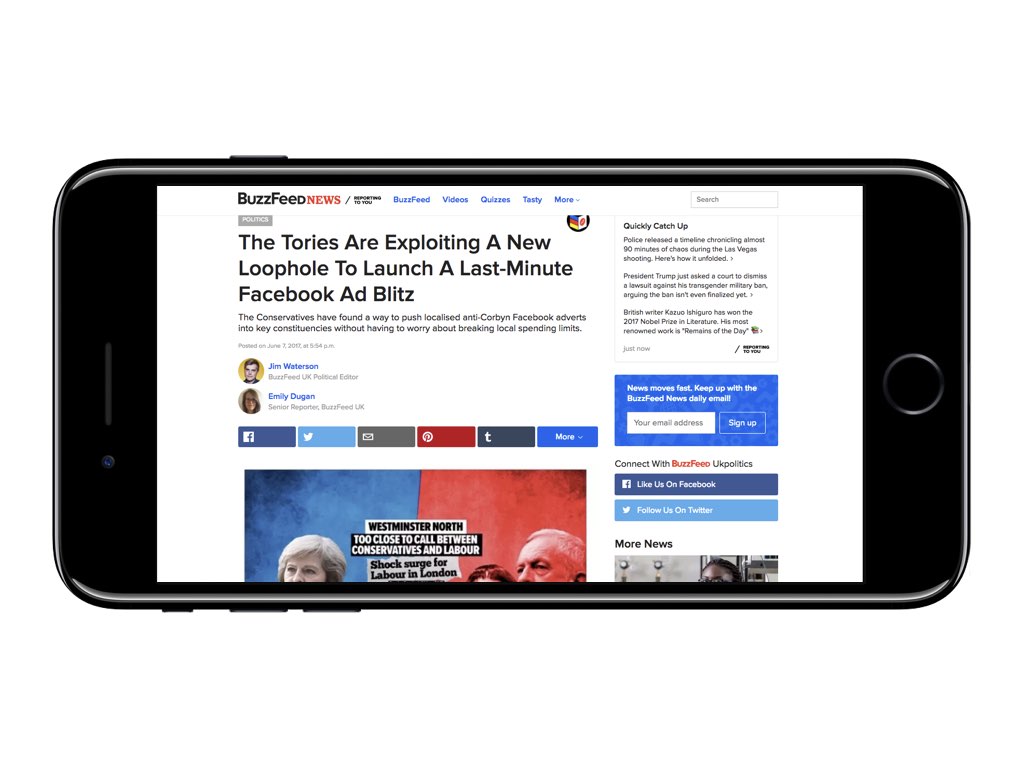Collaborative project with Susana Sampaio-Dias (University of Portsmouth).
In the hours that followed the shock of the exit poll, a narrative quickly emerged amongst political pundits to help explain the unexpected surge in support for the Labour Party: “It Was the Young Wot Won It”. Youth engagement has been a key factor throughout this election. From musicians JME and Stormzy spearheading the #grime4Corbyn campaign, to a massive voter registration drive that resulted in over one million applications from 18-24-year olds, young people have been consistently touted as potential difference-makers in the outcome of #GE2017.
This leads us to ask, what information sources did these young people draw on when deciding how to cast their vote? We analyse how this election was reported to younger audiences by two new-media organisations, BuzzFeed and VICE.
We argue that both publications are examples of digital disruption in election reporting. More than distributing content, BuzzFeed and VICE embrace the culture of social media. They draw on the ideas, language, and behaviours of the social web to connect with their audience. In doing so, they challenged the traditional values and norms of news making during this general election.
Publications
Dennis, J. and Sampaio-Dias, S. (2021). ‘Tell the Story as You'd Tell it to Your Friends in a Pub’: Emotional Storytelling in Election Reporting by BuzzFeed News and Vice News. Journalism Studies. 22(12), 1608-1626.
Abstract
This article analyses two digital-native news organisations, BuzzFeed News UK and Vice News (UK), and explores how they use emotional forms of storytelling in their election reporting. Drawing on a qualitative textual analysis of 280 news articles published during the 2017 UK general election, we scrutinise the textual and visual elements of emotional storytelling across three distinct groupings: (1) language and tone; (2) visual, formatting, and interaction, and (3) production and editorial choices. We argue that BuzzFeed and Vice draw on an emotional vernacular to engage with and relate to their young audience, while simultaneously providing a gateway to convey sophisticated political content. Both organisations embrace internet culture in their reporting, drawing on subjective, confessional, and personalised forms of expression that characterise communication on social media. The journalistic work required to wrap long-form, analytical election reporting in an emotive narrative provides evidence of innovative audience-orientated practice. In doing so, BuzzFeed and Vice offer election coverage that is uniquely tailored to a younger audience.
Download here.
Dennis, J. and Sampaio-Dias, S. (2017). Not Just Swearing and Loathing on the Internet: Analysing BuzzFeed and VICE during #GE2017. In Thorsen, E. Jackson, D. and Lilleker, D. (Eds.), UK Election Analysis 2017: Media, Voters and the Campaign (pp. 66-67). Bournemouth: The Centre for the Study of Journalism, Culture and Community, Bournemouth University.
Download here.
Selected talks
Dennis, J. and Sampaio-Dias, D. (2020). Not Just Swearing and Loathing on the Internet: Analysing BuzzFeed, VICE, and the Affective Turn in Election Reporting. Paper presented at the MeCCSA Annual Conference, Brighton, January 8-10.
Dennis, J. Sampaio-Dias, S. and Kreuschitz-Markovič, M. (2018). Not Just Swearing and Loathing on the Internet: Analysing BuzzFeed and VICE during #GE2017. Paper presented at International Communication Association Pre-Conference, Making Sense of Election Reporting, Prague, May 24.
Dennis, J. and Sampaio-Dias, S. (2017). Not Just Swearing and Loathing on the Internet: Analysing BuzzFeed and VICE during #GE2017. Paper presented at the Political Studies Association Media and Politics Group Annual Conference, Hull, November 16-17.


